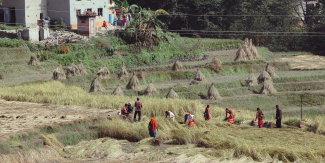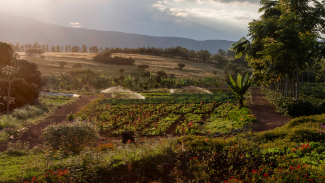FILTER
Displaying 181 - 190 of 767 publications
Abstract A large body of literature in development economics has investigated the impact of improved agricultural technologies on productivity and the welfare of smallholder farmers. This paper…
| EfD Discussion Paper | EthiopiaThe study assessed perceived factors influencing farmers’ preference for rice varieties grown in Enugu State, Nigeria. A structured interview schedule was used to obtain information from 150 rice…
| Peer Reviewed | NigeriaAbstract This paper assesses consumer awareness, preference and perception of high-quality products from information provided in the market, and on the labels for coffee and rice products in Mbeya and…
| Peer Reviewed | TanzaniaThe growth of traditional crops could be a primary resource for adapting to climate change and strengthening agrosystems’ resilience. However, these crops tend to be replaced by non-traditional crops…
| Peer Reviewed | ChileLately, economies have been facing an increase in the frequency and magnitude of droughts, which come with potential consequences on food prices. This article aims to analyze how drought disturbances…
| Peer Reviewed | ChileEnvironmental problems have accompanied the accelerated land use and land cover change (LULCC), yet few local level studies make an attempt to assess the dynamics of LULCC. This work employed GIS and…
| Peer Reviewed | GhanaMost of the empirical literature assessing the impacts of climate change on agriculture has modeled crop yields as a function of the levels or deviations in the growing-period rainfall. However, an…
| Peer Reviewed | IndiaTechnological change in production processes with gendered division of labor across tasks, such as agriculture, can have a differential impact on women's and men's labor. Using exogenous variation in…
| Peer Reviewed | India
